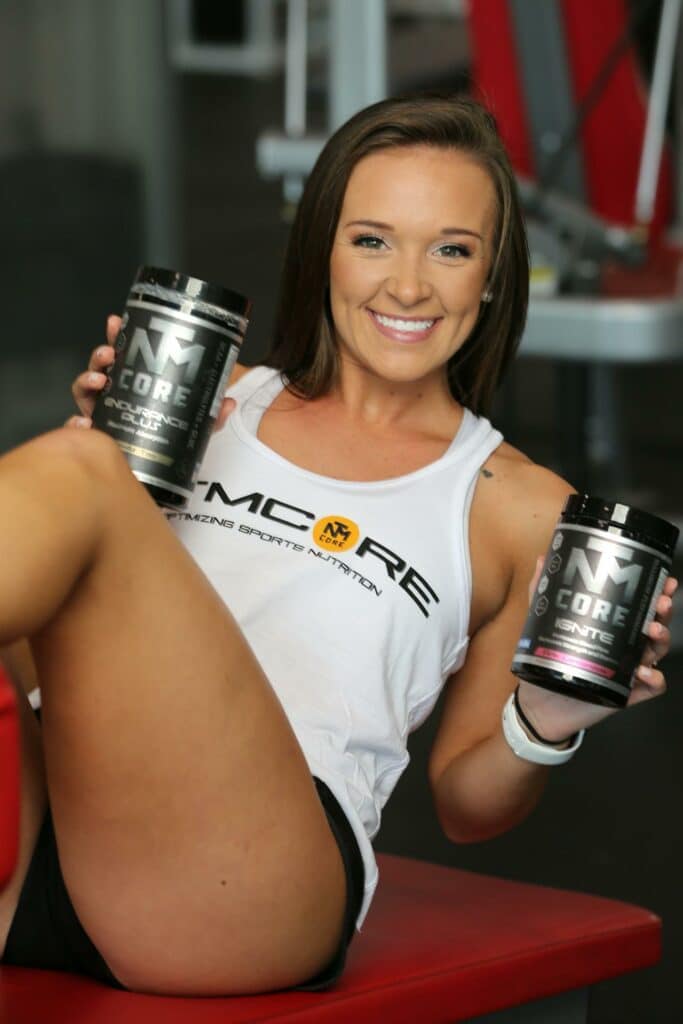Muscle-Building Supplements: Do You Really Need Them?

- Should You Train To Muscle Failure Every Set? What You Need To Know - March 4, 2025
- Nutrition in a Hurry: Top Post-Workout Snacks for Active People - February 20, 2025
- 15 Healthy Meal Prep Recipes: Your Weight Loss Made Easy - February 18, 2025
You can achieve about 80-90% of your muscle-building potential through proper nutrition and training alone, without supplements. While supplements like creatine monohydrate and whey protein have proven benefits backed by extensive research, they’re not essential for muscle growth. Your primary focus should be on maintaining adequate protein intake (1.6-2.2g/kg body weight), following progressive overload principles, and ensuring proper recovery through sleep and nutrition. If you choose to use supplements, prioritize those with strong scientific validation and clear ergogenic effects. Understanding the role and limitations of supplements will help you make informed decisions about your fitness investments.
Key Takeaways
- Muscle growth is achievable through proper nutrition and training alone, making supplements optional rather than necessary for most individuals.
- Creatine monohydrate and whey protein are the most scientifically validated supplements with proven benefits for muscle-building.
- Whole food sources should be the primary focus, with supplements serving as convenient additions to meet daily protein requirements.
- Many expensive supplements lack strong scientific evidence, making them poor investments compared to proper nutrition and training.
- The effectiveness of supplements depends on consistent training, adequate sleep, and proper nutrition as foundational elements.
Understanding Basic Muscle Growth Principles
Before diving into muscle-building supplements, you must understand the fundamental biological processes that drive muscle growth. Muscle hypertrophy mechanisms primarily involve protein synthesis exceeding protein breakdown, creating a positive protein balance in response to mechanical tension and metabolic stress.
When you engage in resistance training, you’re initiating microscopic damage to muscle fibers, triggering cellular repair processes. These mechanisms activate satellite cells, which fuse to existing muscle fibers and donate their nuclei, enabling increased protein synthesis. Your body’s adaptive response follows specific resistance training principles: progressive overload, specificity, and adequate recovery between sessions. You’ll need sufficient nutrients and rest to support these processes, as muscle protein synthesis can remain elevated for up to 48 hours post-exercise. Additionally, the incorporation of adequate protein intake is crucial for maximizing muscle protein synthesis and recovery after workouts.
Common Muscle-Building Supplements

While numerous supplements flood the market with promises of enhanced muscle growth, scientific evidence supports only a select few as truly effective. Research consistently demonstrates that whey protein supplementation, when combined with resistance training, enhances muscle protein synthesis and recovery. Branched-chain amino acids (BCAAs) play a vital role in muscle tissue repair and growth, particularly during fasting states or intense training sessions.
The most scientifically validated muscle-building supplements include:
- Whey protein isolate: Fast-absorbing complete protein source
- Creatine monohydrate: Enhanced strength and power output
- BCAAs: Reduced muscle breakdown during training
- Beta-alanine: Improved muscular endurance and recovery
These supplements work synergistically with proper nutrition and training protocols to optimize your muscle-building potential. Additionally, incorporating whey protein into your diet can help enhance satiety and stabilize blood sugar levels, supporting overall weight loss efforts.
The Role of Protein Powder
Since protein serves as the fundamental building block of muscle tissue, protein powder supplements provide a convenient and efficient way to meet elevated protein requirements during muscle-building phases. You’ll find various protein sources available, including whey, casein, egg, and plant-based options, each with distinct absorption rates and amino acid profiles.
Protein timing plays a vital role in maximizing muscle protein synthesis. You’ll benefit most from consuming protein powder immediately post-workout when your muscles are primed for nutrient uptake. While whole-food protein sources should form the foundation of your nutrition plan, protein powder supplements can help you reach your daily protein targets, especially when you’re struggling to consume adequate amounts through meals alone or need quick absorption during specific windows of opportunity. Additionally, choosing low-sugar options can enhance your muscle recovery without unnecessary additives.
Pre-Workout Supplements Explained

Pre-workout supplements represent a distinct category of performance-enhancing compounds designed to maximize training intensity and exercise capacity. These formulations typically combine key pre-workout ingredients that target multiple physiological pathways to enhance your performance.
The ideal timing for consumption is typically 30-45 minutes before exercise, allowing the compounds to reach peak blood concentrations during your workout. Common ergogenic ingredients include:
- Beta-alanine for enhanced muscular endurance and reduced fatigue
- Caffeine for increased alertness and power output
- L-citrulline for improved blood flow and muscle pumps
- Creatine monohydrate for ATP regeneration and strength
You’ll find varying concentrations of these compounds across different products, making it essential to understand your individual tolerance and specific training requirements when selecting a pre-workout supplement.
Creatine Benefits and Research
As one of the most extensively researched sports supplements, creatine monohydrate has demonstrated consistent ergogenic benefits across hundreds of peer-reviewed studies. Research shows it can increase muscle strength, power output, and lean body mass when combined with resistance training. You’ll find natural creatine sources in red meat and fish, but supplementation provides concentrated amounts that exceed dietary intake.
Optimal creatine usage involves a loading phase of 20g daily for 5-7 days, followed by a maintenance dose of 3-5g daily. Studies indicate this protocol maximizes muscle creatine saturation and ATP availability. You’ll experience enhanced muscle phosphocreatine stores, improved recovery between sets, and increased training volume capacity. These adaptations lead to greater muscle protein synthesis and hypertrophic responses over time. Additionally, creatine promotes water retention in muscle cells, which contributes to increased muscle size and strength.
Natural Alternatives to Supplements

While many athletes rely on commercial supplements, several natural food sources can effectively boost muscle growth and exercise performance. Research demonstrates that whole foods and herbal remedies can provide comparable benefits to commercial supplements, often with additional micronutrients and fiber that support overall health.
Consider these natural alternatives that have been scientifically validated:
- Eggs contain all essential amino acids and bioavailable proteins for muscle synthesis
- Greek yogurt delivers both fast-acting whey and slow-releasing casein proteins
- Quinoa provides complete protein plus complex carbohydrates for energy
- Tart cherry juice offers natural anti-inflammatory compounds that aid recovery
These whole food options deliver nutrients in forms your body recognizes and processes efficiently, potentially leading to better absorption and utilization compared to synthetic alternatives. Additionally, incorporating adequate protein intake ensures that muscle protein synthesis is maximized for optimal recovery and growth.
Supplement Safety and Regulations
Since the dietary supplement industry operates under different regulations than pharmaceuticals, consumers should understand the key oversight limitations. Under the Dietary Supplement Health and Education Act (DSHEA), manufacturers don’t need FDA approval before marketing their products. You’re responsible for verifying supplement safety through third-party testing and careful supplement sourcing.
To protect yourself, you’ll need to research manufacturers’ regulation compliance and quality control measures. Look for companies that follow Good Manufacturing Practices (GMP) and obtain certifications from recognized organizations like NSF International or USP. Be particularly cautious with products manufactured outside the US, where regulatory standards may differ markedly. Always check for FDA warnings and adverse event reports before purchasing any supplement, as these can indicate potential safety concerns.
Cost Versus Effectiveness Analysis
The cost-effectiveness of muscle-building supplements varies markedly based on their proven efficacy and market pricing. When conducting a cost assessment, you’ll find that some expensive supplements deliver minimal results, while certain affordable options provide substantial benefits. Your effectiveness comparison should focus on supplements with scientific validation, measuring their impact against their price point.
- Creatine monohydrate offers exceptional value, typically costing $0.10-0.30 per serving while delivering documented strength gains
- Whey protein provides essential amino acids at $0.75-1.50 per serving, making it a cost-efficient protein source
- Pre-workout supplements often command $2.00-3.00 per serving with varying effectiveness
- BCAAs generally cost $1.00-2.00 per serving but show limited benefits in research
Consider your training goals and budget when evaluating supplement investments, prioritizing those with proven ergogenic effects.
Building Muscle Without Supplements
Natural muscle growth can be achieved effectively without relying on supplementation through proper training methodology and nutritional fundamentals. You’ll need to focus on progressive overload principles, whether through bodyweight exercises or resistance training while maintaining adequate protein intake from whole food sources.
To optimize muscle synthesis, you’ll want to consume 1.6-2.2g of protein per kilogram of body weight daily, spacing your meals 3-4 hours apart. Your nutrition strategies should prioritize lean meats, fish, eggs, legumes, and dairy products while maintaining a slight caloric surplus of 10-20% above maintenance.
Proper rest between training sessions (48-72 hours per muscle group) and quality sleep (7-9 hours) will maximize your body’s natural anabolic processes, enabling consistent muscular development without supplemental aids.
Frequently Asked Questions
How Long Should I Wait Between Taking Different Supplements?
You’ll optimize supplement absorption by spacing different supplements 2-3 hours apart. Follow specific timing strategies for fat-soluble and water-soluble vitamins, and consult supplement labels for potential interactions.
Can I Mix Multiple Supplements in the Same Shake?
While some supplements blend seamlessly, others can compete for absorption or alter effectiveness. You can mix protein, creatine, and BCAAs safely, but keep mineral-based supplements separate for ideal shake effectiveness.
Should I Cycle off Supplements Periodically to Maintain Effectiveness?
Supplement cycling isn’t scientifically necessary for most products, except for stimulants. You’ll maintain effectiveness without cycling if you’re using protein, creatine, BCAAs, or other common performance supplements.
Do Supplement Needs Change as You Age?
You’ll need to adjust supplements as age-related changes affect your nutrient absorption. After 50, you’ll typically require higher amounts of vitamin B12, vitamin D, calcium, and protein.
Can Women Take the Same Muscle-Building Supplements as Men?
Off the bat, you can take similar supplements regardless of gender differences, though supplement efficacy may vary due to hormonal profiles. Adjust dosages and consider specific formulations designed for women’s needs.
Final Thought
While supplements can support your muscle-building goals, research shows they’re not essential for hypertrophy. Studies indicate that only 5% of muscle growth variance comes from supplementation, while proper nutrition and training account for 95%. You’ll achieve better results by focusing on adequate protein intake, progressive overload, and recovery. Consider supplements as optional tools rather than necessities, and always prioritize whole food nutrition and consistent training protocols.
- Adequate protein intake
- Progressive overload
- Proper recovery
- Consistent training protocols
Always consult with healthcare professionals or registered dietitians before starting any new supplement regimen.
Table of Contents






